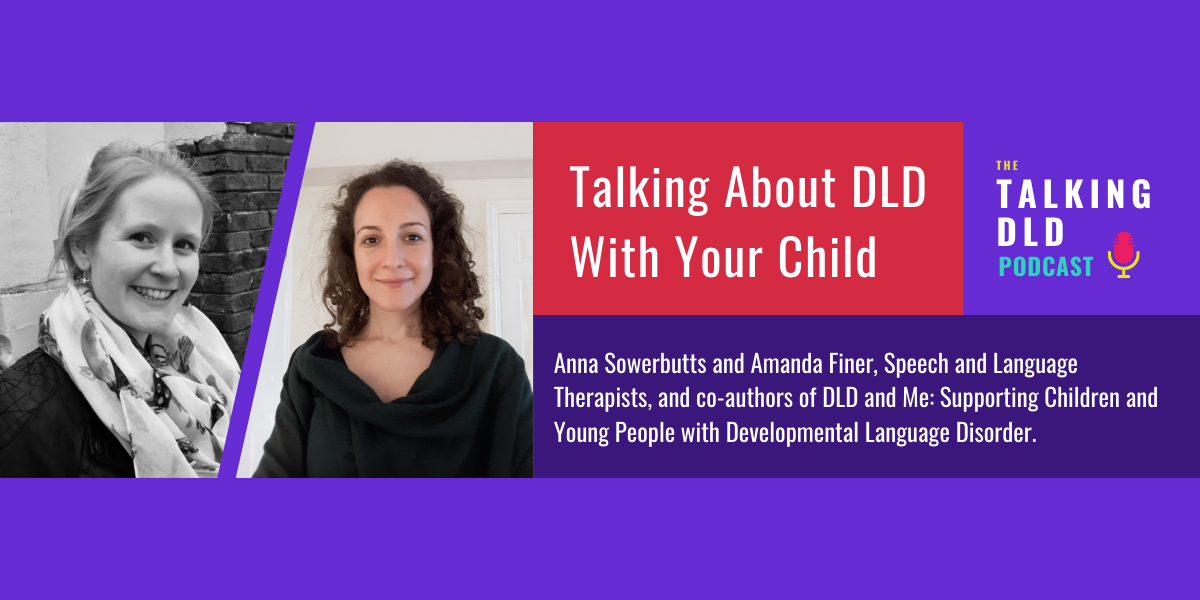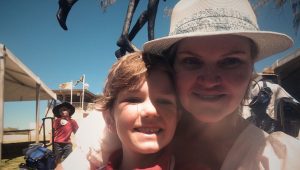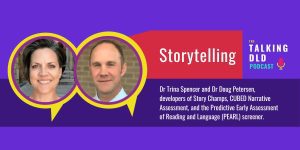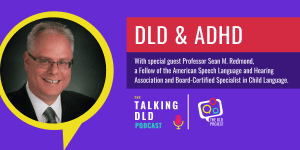A common question we hear from families is “how do we tell our child they have Developmental Language Disorder (DLD)?”. Great question!
In this episode of The Talking DLD Podcast we’re speaking with Anna Sowerbutts and Amanda Finer, authors of the book DLD and Me: Supporting Children and Young People with Developmental Language Disorder. Topics covered include:
- When is a ‘good’ time to communicate a DLD Diagnosis
- Understanding the impact DLD can have on other areas of a person’s life
- What families and clinicians might think about when preparing for these conversations
- How families can support their person with DLD to grow their own confidence and self-efficacy around their diagnosis
- Recommendations for clinicians who are supporting families having these initial and ongoing conversations
About DLD & ME
DLD And Me: Supporting Children and Young People with Developmental Language Disorder is a book designed for speech and language therapists, teachers, other professionals and parents. The book consists of an easy-to-follow 12 week programme to help children and young people with DLD understand their strengths, what DLD is and how they can support their own communication in everyday life. The programme was awarded the Sternberg Award for Clinical Innovation by the Royal College of Speech and Language Therapists in 2019.
Key features include:
- clearly worded session plans for therapists or education staff to follow;
- engaging visual resources to accompany the session plans, each available to photocopy and download;
- home sheets to keep families involved and informed;
- information sheets and training plans for parents and carers;
- information sheets for education staff;
- outcome measures to evaluate progress.
About the Authors
Anna Sowerbutts
Anna is a Highly Specialist Speech and Language Therapist based in Hackney. She has worked with children with a wide range of speech, language and communication disorders in early years, primary and secondary schools. Anna specialises in speech and language disorders, including Developmental Language Disorder. Additionally, Anna works clinically part-time for the NHS while carrying out research at UCL.
Amanda Finer
Amanda is a Highly Specialist Speech and Language Therapist. She worked in the NHS until 2020 and now for the Charity Symbol UK, also providing private assessments and therapy. Amanda has specialised in working with children in early years, primary and secondary schools with DLD and speech disorders since 2012. She led the development of Hackney’s DLD service and has spoken about this at a range of events including a UCL Study Day, Clinical Excellence Networks (CENs), and a webinar organised by the Royal College of Speech and Language Therapists (RCSLT).
Resources discussed in this episode
- DLD and Me website to support children and young people to understand their diagnosis of DLD – www.dldandme.co.uk
- van den Bedem, NP. et al. (2018). Depressive symptoms and emotion regulation strategies in children with and without developmental language disorder: a longitudinal study. International Journal Language Communication Disorders, 53(6), 1110-1123
- Importance of normalising difficulties: Merrick, R. & Roulstone, S. (2011). Children’s views of communication and speech-language pathology. International Journal of Speech-Language Pathology, 13(4), 281-290.
- Labels: Bishop, D. (2014). Ten questions about terminology for children with unexplained language problems. International Journal of Language and Communication Disorders, 49, 381–415.
- Buy the DLD and Me book here.
- RADLD YouTube channel
- Lily Farrington’s DLD video
- Twitter handles @pinchof_SaLT and @AmandaFiner
- A Family Guide to Understanding a DLD Diagnosis – The DLD Project
- Get to Know Me & DLD Editable Resource.




